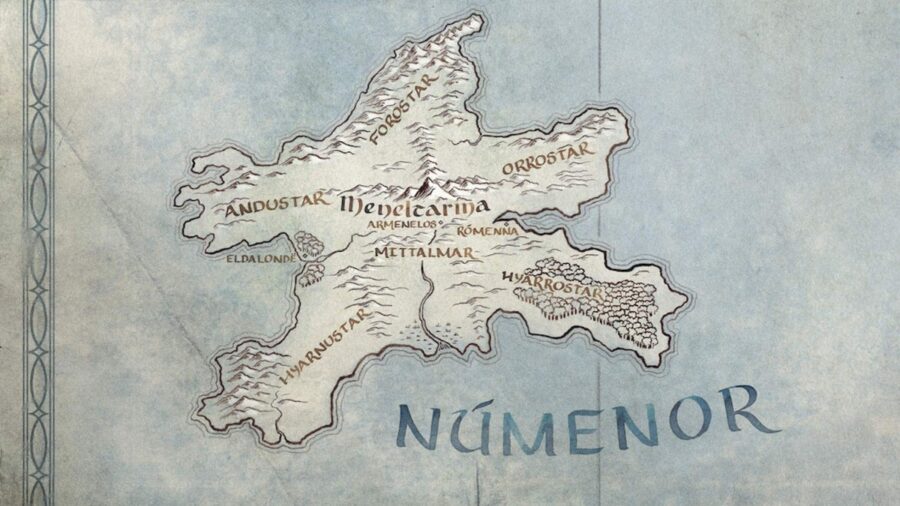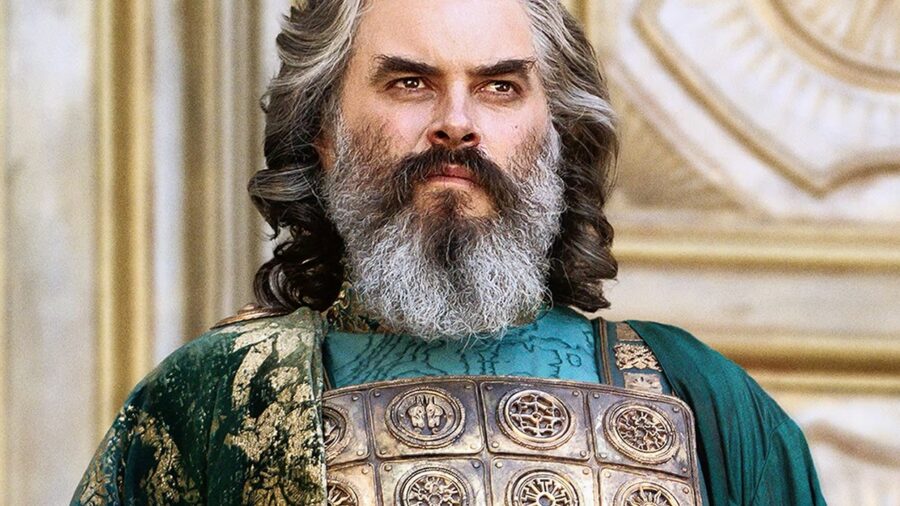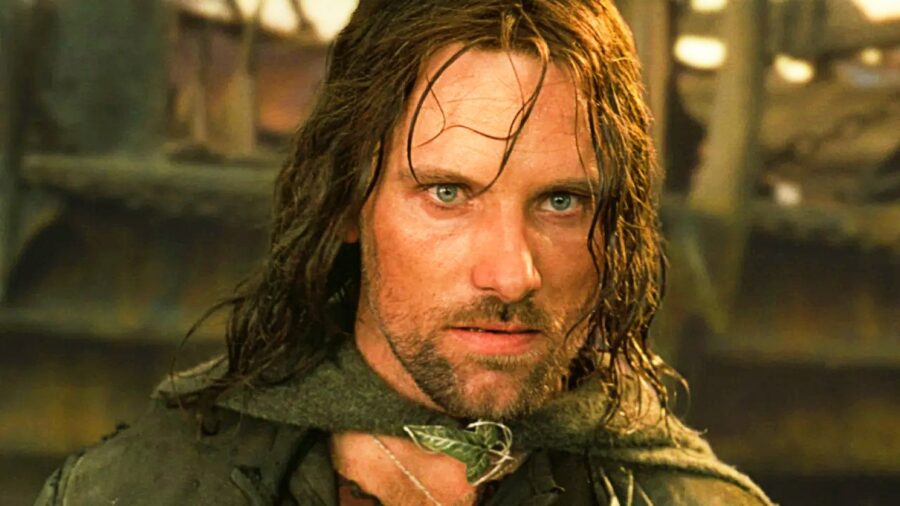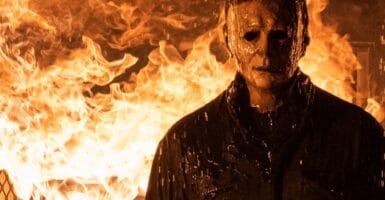What is Númenor? The Lord Of The Rings Island Kingdom Explained
In the Lord of the Rings franchise, Númenor is a doomed island kingdom in Middle-earth.
The Lord of the Rings has been a global cultural sensation since The Hobbit was first published in 1937, and author JRR Tolkien’s publishers begged him for a follow-up. Amazon Prime Video’s new series The Lord of the Rings: The Rings of Power has jumpstarted a new wave of interest, particularly as much of the action takes place in the previously unseen kingdom of Númenor. However, that does raise a number of questions for new fans, which we are here to answer.
NÚMENOR IS AN ISLAND KINGDOM

In the lore of Middle-earth, Númenor was an island kingdom that once was home to the greatest civilization that mankind has ever known, far outstripping the later lands of Gondor, Arnor, and Rohan. It was located in the Great Sea to the west of the lands that most of the original Lord of the Rings trilogy takes place in, closer to Valinor (the home of the godlike Valar) than it is to Middle-earth proper. The Númenóreans were particularly known as seafarers, with their culture centered around sailing and exploring the world.
In many ways, Númenor is the parent civilization to the kingdoms of man we see in the original Lord of the Rings trilogy. The Númenórean kings established a coastal kingdom that traded with the humans and Elves of Middle-earth, sharing their advanced technology and culture. For millennia, Númenor was the unquestioned dominant power of mankind in the world.
NÚMENOR WAS DESTROYED BY THE VALAR
JRR Tolkien created the kingdom of Númenor (also known Elenna-nórë or Westernesse) as a kind of reference to the Biblical fall of man, in which humanity’s overreaching results in exile from paradise. At the height of their power, the Númenóreans became obsessed with achieving the immortality of the Elves and led a disastrous campaign against the Valar themselves, which led to the destruction of the island and the loss of most of their wisdom and beauty. The survivors of Númenor founded the kingdoms of Arnor and Gondor in Middle-earth, seeking to maintain some fraction of their former glory.
The destruction of Númenor also recalls the mythical destruction of Atlantis, a legendary kingdom that sank beneath the ocean and seeded the world with culture and technology, and foremost, a cautionary tale of the dangers of pride.
THE NÚMENÓREANS WERE DESCENDANTS OF HUMANS WHO FOUGHT MORGOTH
The original inhabitants of Númenor were humans who had fought with the Elves against Morgoth, the original Dark Lord of Middle-earth and the master of Sauron (more on him in a bit). For their loyalty to the forces of good and their bravery, the Valar created the island of Númenor and gifted it to the humans of the long-ago kingdom of Beleriand, who migrated there over time.
The Númenóreans were described as tall (with the tallest nearing eight feet) and long-lived by the standards of man. The common people often lived to 200 years old, while the royal line of Númenor had lifespans as much as double that. However, there is a good reason for that, aside from the power of monarchy.
THE KINGS OF NÚMENOR WERE RELATED TO ELVES

The first king of Númenor was Elros, the son of Eärendil, a human who had traveled to Valinor to personally plead with the Valar for their aid against Morgoth. Both Elros and his brother Elrond were half-human, half-Elf, and were given the choice whether to live as a human and eventually die or to have the immortal life of an Elf. Elros chose humanity, while Elrond chose immortality and lived among the Elves.
Eventually, the Kings of Númenor came under the influence of Sauron, who convinced them to go to war against the Valar. He had been brought to the island after the Númenórean army had challenged Sauron for dominion over humanity, and the Dark Lord’s armies had abandoned him in the face of overwhelming might. It is perhaps the best marker of the power of Númenor that the mere presence of its forces could make Sauron surrender, considering the battles that had been fought against him and later would again.
NÚMENÓREANS FOUNDED GONDOR
In the destruction of Númenor, Sauron lost his physical form (as well as the ability to be hot, basically) and fled back to Middle-earth, where he resumed command of Mordor. A number of Númenóreans who were faithful to the Valar had already arrived in Middle-earth, led by Elendil and his sons Isildur and Anárion. Isildur founded the kingdom of Arnor in the north, and Anárion, Gondor in the south.
Eventually, the kingdoms of man came back into conflict with Sauron, who wielded the power of the One Ring and ceaselessly sought to dominate the world in the way that Dark Lords have a tendency to. In the final battle (which you might remember from flashbacks in The Fellowship of the Ring), Elendil was killed by Sauron, but his son Isildur succeeded in taking the Ring from him. However, he then refused to destroy it, necessitating an influential trilogy of novels to explain the conflicts that happened as a result.
ARAGORN IS A DESCENDENT OF NÚMENOR

Aragorn (most famously portrayed by Viggo Mortensen in Peter Jackson’s trilogy of films) is the direct descendent of Isildur and thus of Númenórean blood. This results in him being long-lived (canonically, he was approximately 87 during the events of the Lord of the Rings), as well as the hereditary king of both Arnor and Gondor. For most of his life, he sought to distance himself from this responsibility, fearing that he had inherited weakness from Isildur.
By the end of the original trilogy, Aragorn had embraced his heritage and assumed the throne of Gondor, essentially returning Númenor to its place as ruler of mankind. He also married Arwen, who by her father Elrond was very distantly related to him through his ancestor Elros (but that’s royalty for you).
It is certain that The Rings of Power will depict Sauron’s seduction of the rulers of Númenor and the eventual destruction of the island. The series has thus far changed some key events and depictions of characters (much to the ire of some fans), so it is likely there will be some differences between what happens in the show and the events as written by JRR Tolkien. However, we shall just have to wait and see.












